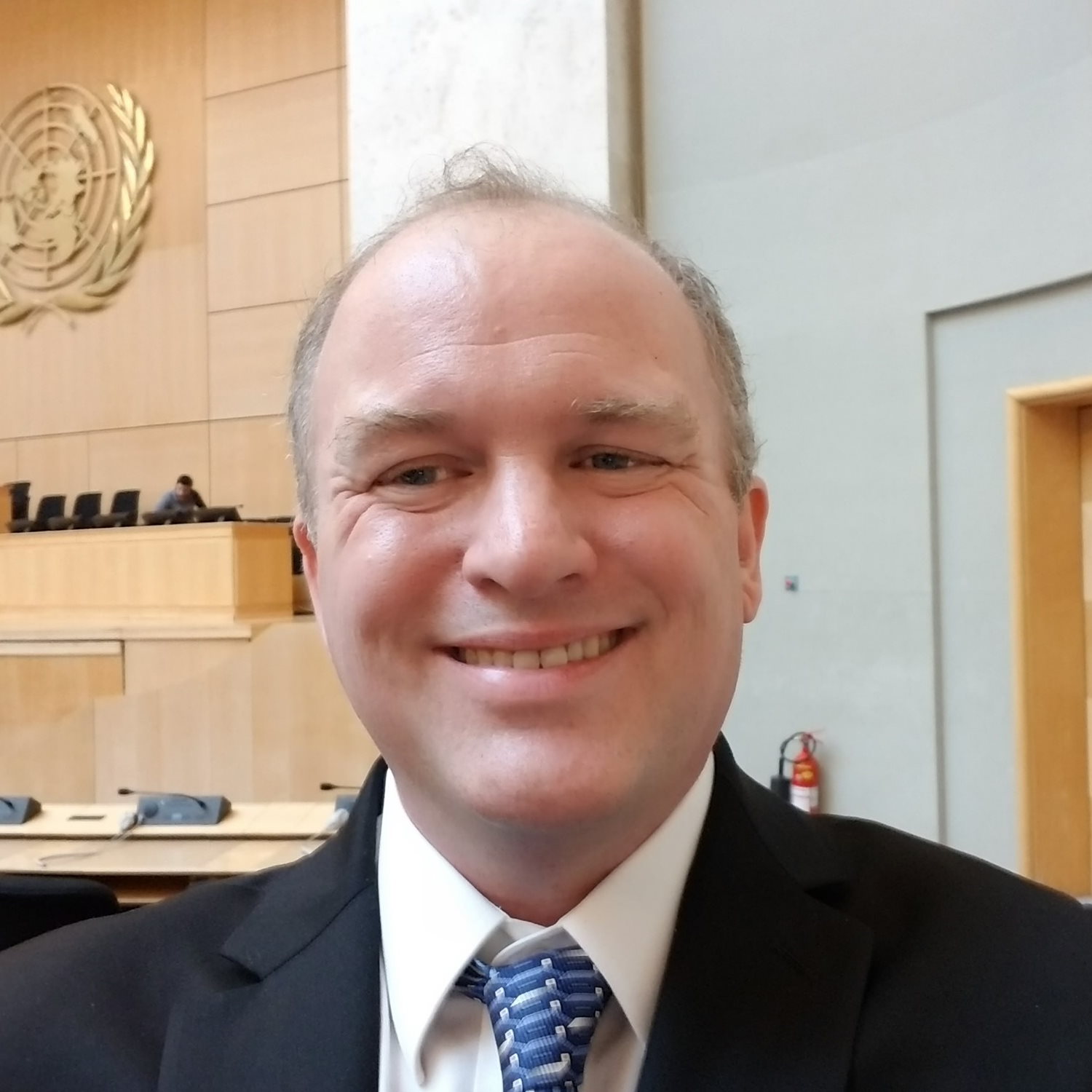Principal Investigators

Valeriya Mechkova is a Post-Doctoral Fellow at the Department of Political Science, University of Gothenburg, and a Researcher at the Varieties of Democracy (V-Dem) Institute. Her research focuses on democracy and representation, and she is particularly interested in women’s representation as a group. Valeriya has published scholarly articles in APSR, Democratization, Journal of Democracy, Political Research Quarterly among others. She is currently a team leader on a USAID-funded project to analyze democracy, governance and human rights using the V-Dem data set, and has previously worked as a consultant for the World Bank, Community of Democracies and International IDEA. From 2013 until 2016 she worked as V-Dem’s analyst and data operations manager. Valeriya holds a M.Sc. degree in International Administration and Global Governance from University of Gothenburg.

Dan Pemstein is a comparative political economist and methodologist who studies democratic institutions. Much of his current research examines challenges that digital networks pose to democracy and develops tools to better measure democratic institutions. He also has an ongoing research program that explores the interplay between legislative behavior, political careers, and party organization and have burgeoning interests in the political economy of development and criminal justice policy. He is co-developer of the Unified Democracy Scores, co-author of the Scythe Statistical Library, and Project Manager for Measurement Methods and Steering Committee member for V-Dem. Pemstein is currently a Professor of Political Science & Public Policy at North Dakota State University. He obtained his PhD in Political Science at the University of Illinois, has held research fellowships at Harvard University and Vanderbilt University, and was formerly Croft Assistant Professor at the University of Mississippi.

Brigitte Seim is a scholar of comparative politics, focusing on the political economy of development. Her research examines the relationship between citizens and political officials, with a particular emphasis on accountability in developing countries. She is particularly interested in two related but distinct threads of research: one considers how accountability mechanisms can be perverted or disrupted when states are developing politically or economically; and the other considers the methods and data used to study accountability relationships around the world. She obtained her PhD in Political Science from the University of California, San Diego in 2014. For the 2014-2015 academic year, she was a Post-Doctoral Research Fellow with V-Dem, and she is currently V-Dem’s Project Manager of Experiments. In 2015, Seim joined the faculty of the University of North Carolina, Chapel Hill, where she is currently an Associate Professor in the Department of Public Policy, Peter Thacher Grauer Scholar, Adjunct Associate Professor of Global Studies, and Adjunct Associate Professor of Political Science.

Steven Wilson is an Assistant Professor of Politics at Brandeis University. He received his doctorate in political science from the University of Wisconsin-Madison in 2016. His dissertation, Information and Revolution, explored the effects of the Internet on authoritarian regimes, arguing that while the Internet has made mass mobilization easier than ever, its spread has also allowed savvy authoritarian regimes to become more stable than ever. His research focuses on cybersecurity, the Internet’s various intersections with politics, and comparative democratization, particularly in the former Soviet world. Prior to entering academia, he worked in the software industry at a variety of start-ups and the Jet Propulsion Laboratory. Leveraging that technical background and research interest in social media, he designed, built, and manages one of the largest social media collections in scholarly hands worldwide, with over 7 billion tweets downloaded and processed into a fully searchable database over the last decade. Wilson served as a research fellow at the V-Dem Institute. His work at V-Dem involved the design and construction of the online expert coding interface, which hosts millions of data points, from experts in every country in the world, in addition to research on patterns of democratization. He continues to serve as Project Manager of Computational Infrastructure for the V-Dem project.
Post-Doctoral Scholars

Yunus Emre Orhan is Research Project Manager for the Digital Society Project, and post-doctoral scholar at North Dakota State University. He comparatively studies democratic backsliding, with a substantive focus on polarization and social networks and a methodological focus on experiments. His dissertation (financed by the National Science Foundation Doctoral Dissertation Research Improvement Grant) develops and empirically assesses a theoretical framework to explain puzzling support for illiberal incumbents, highlighting the micro-level tradeoffs associated with punishing leaders. Much of his current research examines challenges that the internet, globalization, and gender inequality pose to democracy. He has published his work in diverse outlets, including The Washington Post and peer-reviewed Democratization. Orhan obtained his Ph.D. in Political Science at the University of Wisconsin – Milwaukee.
Project Coordinators

Maguire Martin is from Bismarck, North Dakota USA and is an undergraduate student at North Dakota State University. He is currently studying economics and political science. His personal research interest is in labor economics. Regional managers preparing to send potential participant identifiers to Maguire can verify his PGP public key (fingerprint E823 543E 6849 BD13 4996 6083 4A0E A047 EB58 B871) here.

Layla Pilon is a Master of Public Policy student at North Dakota State University. She completed her B.A. in political science and economics at Boston University. Her personal research interest focuses on the role of government in awarding and limiting civil liberties and rights through political and economic systems.

Lucky Udoudo is pursuing a Master of Public Policy degree at North Dakota State University. His research interests center on taxation policy and health care delivery in developing nations. Specifically, he focuses on analyzing taxation approaches and fiscal reforms that could enhance health care access and services in low-income countries.
Regional Managers

Ahmed Al-Rawi is Regional Manager for the Gulf and Associate Professor of News, Social Media, and Public Communication at the School of Communication at Simon Fraser University, Canada. He is the Director of the Disinformation Project that empirically examines fake news discourses in Canada on social media and news media. His research expertise is related to social media, news, and global communication with emphasis on Canada and the Middle East.

Rosa Borge Bravo is Regional Manager for Southern Europe and is the leader of the research group CNSC (Communication Networks & Social Change) at the Internet Interdisciplinary Institute (IN3) and Associate Professor in Political Science at the Law and Political Science Department, both at the Universitat Oberta de Catalunya (UOC). Her main research areas are online deliberation and participation and the use of social media and participatory platforms by public administrations, political parties and social organizations.

Matías Dodel is Regional Manager for South America and Associate Professor at the Department of Social Sciences, Universidad Católica del Uruguay. He specializes in digital inequalities, e-government, and cyber-safety.

Iginio Gagliardone is Regional Manager for Eastern Africa and Associate Professor in Media and Communication at the University of the Witwatersrand, South Africa, and Associate Research Fellow in New Media and Human Rights in the Programme in Comparative Media Law and Policy (PCMLP), University of Oxford. He holds a PhD from the London School of Economics and Political Science and has been living between Italy, Ethiopia, the UK, and South Africa, researching the relationship between new media, political change, and human development, and exploring the emergence of distinctive models of the information society in the Global South. His most recent publications include “China, Africa, and the future of the Internet” (ZED), “The Politics of Technology in Africa” (CUP) and “Digital Hate” (IUP).

Sofya Glazunova is Regional Manager for Oceania and a postdoctoral research fellow at the Digital Media Research Centre, Queensland University of Technology, Australia. She studies disinformation, digital propaganda and digital resistance and an expert in Russian and global political communication.

Muhametjanova Gulshat is Regional Manager for Central Asia and a Senior Lecturer at the Kyrgyz-Turkish Manas University. In 2004 she graduated from the Department of Computer Engineering at Manas University, in 2014 she received a PhD degree from the Middle East Technical University in Ankara, Turkey in the department of Computer and Educational Technologies. She is the author of a number of scientific publications in international journals. She conducts research in the following areas: ICT; social media and their use for educational purposes; safety of children in the online space; the influence of online gadgets; and the effects of online games on the psychology of children.

Chukwuyere Ebere Izuogu, LL.M (Hannover), CIPP/E is Regional Manager for Western Africa and the head of the Telecoms, Media and Technology Practice at the law firm Streamsowers & Köhn, and a Senior Research Fellow at the African Academic Network on Internet Policy where he concentrates his legal practice and tech policy research interest on the legal and public policy issues of the digital economy and technology. Chukwuyere is also a Certified Information Privacy Professional-Europe (CIPP/E) and a British Computer Society (BCS) Certified Practitioner of Data Protection. He was a 2018 – 2019 Mozilla Tech Policy Fellow and is currently based in Abuja, Nigeria.

Dmytro Khutkyy is Regional Manager for Eastern Europe and a Research Fellow in Digital Governance at the University of Tartu, Estonia.

Djordje Krivokapić is Regional Manager for South-Eastern Europe and an Associate Professor of ICT Law at the Faculty of Organizational Sciences at the University of Belgrade. He is co-founder of the SHARE Foundation. Prof. Krivokapić focuses on the intersection of emerging technologies and society, particularly online free speech, information privacy, digital security, and open access to knowledge.

Maksim lavich is Regional Manager for the Caucasus and a Professor of computer science at Caucasus University, director of the Caucasus Cyber Security Centre, and president of the Scientific Cyber Security Association. He is a cyber security expert and cryptographer.

Tobias Liebetrau is Regional Manager for Northern Eruope and a researcher at the Centre for Military Studies at the University of Copenhagen. He researches international political aspects of cyber security and digital technology. He is particularly interested in how the development, implementation and governance of digital technology and infrastructure affect relations between national and international; public and private; state and market; civilian and military.

Lennart Maschmeyer is Regional Manager for Western Europe and a Senior Researcher in Cybersecurity at the Center for Security Studies at ETH Zurich. His research focuses on the subversive nature of cyber power, the strategic role and limitations of cyber operations, and the impact of the rise of artificial intelligence and autonomous weapons on international stability.

Jozef Michal Mintal is Regional Manager for Central Europe and an assistant professor at the Faculty of Political Science and International Relations at Matej Bel University; co-director and co-founder of the Institute for Democracy at UMB and the Data & Society Lab; and Fellow at the Center for Media, Data and Society at Central European University. Mintal’s research focuses on the role of information and communication technologies in political life, particularly on the security aspects of digital media and the emergent socio-technical dynamics of the cyberspace domain. Currently, he is co-coordinating the Horizon Europe project BRRIDGE, which aims to strengthen research capacities in the field of democracy and policy, and contribute to a deeper understanding of the current democratic disconnect that stems from changes in technologies, inequalities, culture and governance. Mintal was educated at Matej Bel University and King’s College London, and holds an IBM funded PhD in International Relations.

Carlo A. Mora-Monge is Regional Manager for Cenral America and is the John Loveland Professor and Management Department Head at the College of Business, New Mexico State University. His current research interests are in the areas of e-commerce use, supply chain integration, and business analytics. His research has been published in Supply Chain Management: An International Journal, International Journal of Physical Distribution and Logistics Management, Quality Management Journal, among others. He holds a Ph.D. and Ms.C. in Manufacturing Management and Engineering from The University of Toledo, and a Bs.C. in Industrial Engineering from Costa Rica Institute of Technology.
George Ogola is Regional Manager for Southern Africa and is a Professor of Media Industries at the University of Nottingham in the UK. He holds an MA and a PhD from the University of the Witwatersrand, South Africa. His research interests focus on the intersection between technology, the news media, popular culture, and politics. He has published widely in these areas. Among his key outputs are Popular Media in Kenya’s History: Fiction and Newspapers as Socio-Political Actors (New York: Palgrave Macmillan), The Future of Quality Journalism: A Cross-Continental Analysis (London and New York: Routledge, co-edited with Peter Anderson and Michael Williams), The Future of Television in the Global South: Reflections from Selected Countries (London: Palgrave,) and AI and Journalism in Africa: Issues and Debates (London: Routledge: Forthcoming).

Emmanuel C. OGU is Regional Manager for West Africa and an aspiring Tech Diplomat, who is currently a Chartered IT Professional, a trained Computer Scientist, an Advocate for Digital Rights & Freedom, a Cybersecurity Specialist, a Technology Governance & Digital Development Expert, and a Sustainable Development Researcher. He holds a BSc. in Computer Science (Technology), a MSc. in Computer Science (Networking & Telecommunications, and a PhD in Computer Science (Cybersecurity), since 2011, 2014, and 2018, respectively. He has more than 8 years of cumulative experience working at the intersection of Information Technology with Public Policy, Cybersecurity, Sustainable Development, Internet Governance, and Digital Rights.

Irene Poetranto is Regional Manager for South-East Asia and a PhD Candidate in the Department of Political Science at the University of Toronto. Her research interests include Internet governance and the politics of Internet regulation, gender and digital security, and countering terrorism, violent extremism, and hate speech online. She obtained her Master’s degree in Political Science and Asia Pacific Studies from the University of Toronto and Bachelor’s degree in Political Science from the University of British Columbia.

Alexandra Siegel is Regional Manager for the Middle East and an Assistant Professor of Political Science at the University of Colorado Boulder, a faculty affiliate of NYU’s Center for Social Media and Politics and Stanford’s Immigration Policy Lab, and a nonresident fellow at the Brookings Institution. She received her PhD in Political Science from NYU in 2018. Her research uses social media data, network analysis, and experiments—in addition to more traditional data sources—to study mass and elite political behavior in the Arab World and other comparative contexts. She is a former Junior Fellow at the Carnegie Endowment for International Peace and a former CASA Fellow at the American University in Cairo. She holds a Bachelors in International Relations and Arabic from Tufts University.

Marystella Simiyu is Regional Manager for Southern Africa and a Doctor of Laws candidate at the University of Pretoria. She works as a Programs Officer at the Expression, Information and Digital Rights Unit at the Centre for Human Rights, University of Pretoria, where she also teaches a Master’s class on information disorder and elections. Her research interests include international human rights law, the African human rights system, elections and democracy, and digital rights.

Semuhi Sinanoglu is Regional Manager for Northern Africa and a Ph.D. candidate in Political Science at the University of Toronto. He works on the authoritarian political control of key social groups using repression and polarization. He is also the co‑founder of a Toronto‑based political risk consultancy company that leverages big data to predict protests. He is a graduate associate of POSTCOR Lab and a fellow at the Munk School Trudeau Center for Peace, Conflict, and Justice.

Janjira Sombatpoonsiri is Regional Manager for South-East Asia and Assistant Professor at the Institute of Asian Studies, Chulalongkorn University (Thailand), and an Associate at the German Institute for Global and Area Studies. She has extensively researched civil society activism, pro-democracy movements, civic space, and recently digital repression in autocracies. She is the author of Humor and Nonviolent Struggle in Serbia (New York: Syracuse University Press, 2015). Her academic articles appear in several academic journals, including Journal of Peacebuilding & Development, Journal of Civil Society, Journal of Contemporary Asia, and Voluntas: International Journal of Voluntary and Nonprofit Organizations. She is a member of the Carnegie Endowment for International Peace’s Civic Research Network and Digital Democracy Network; a visiting fellow at the Institute of Advance Studies, University of Loughborough; an editorial board member of PROTEST Journal and the Journal of Nonviolence and Pacifism; and a consultant for the United Nations Development Programme Thailand. She was a visiting fellow at the ISEAS Yusof-Ishak (Singapore, 2021-2022), the Taiwan Foundation for Democracy (Taiwan, 2020), and the Institute of Defense Studies and Analyses (India, 2017).

Yi-Ting Wang is Regional Manager for East Asia and an Associate Professor at National Cheng Kung University (Taiwan) and received her PhD in Political Science at Duke University. Prior to joining NCKU, she was a Post-Doctoral Research Fellow with V-Dem. Her research interests center on democratic transitions and sustainability.
